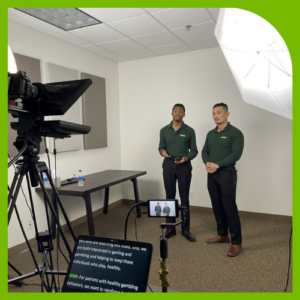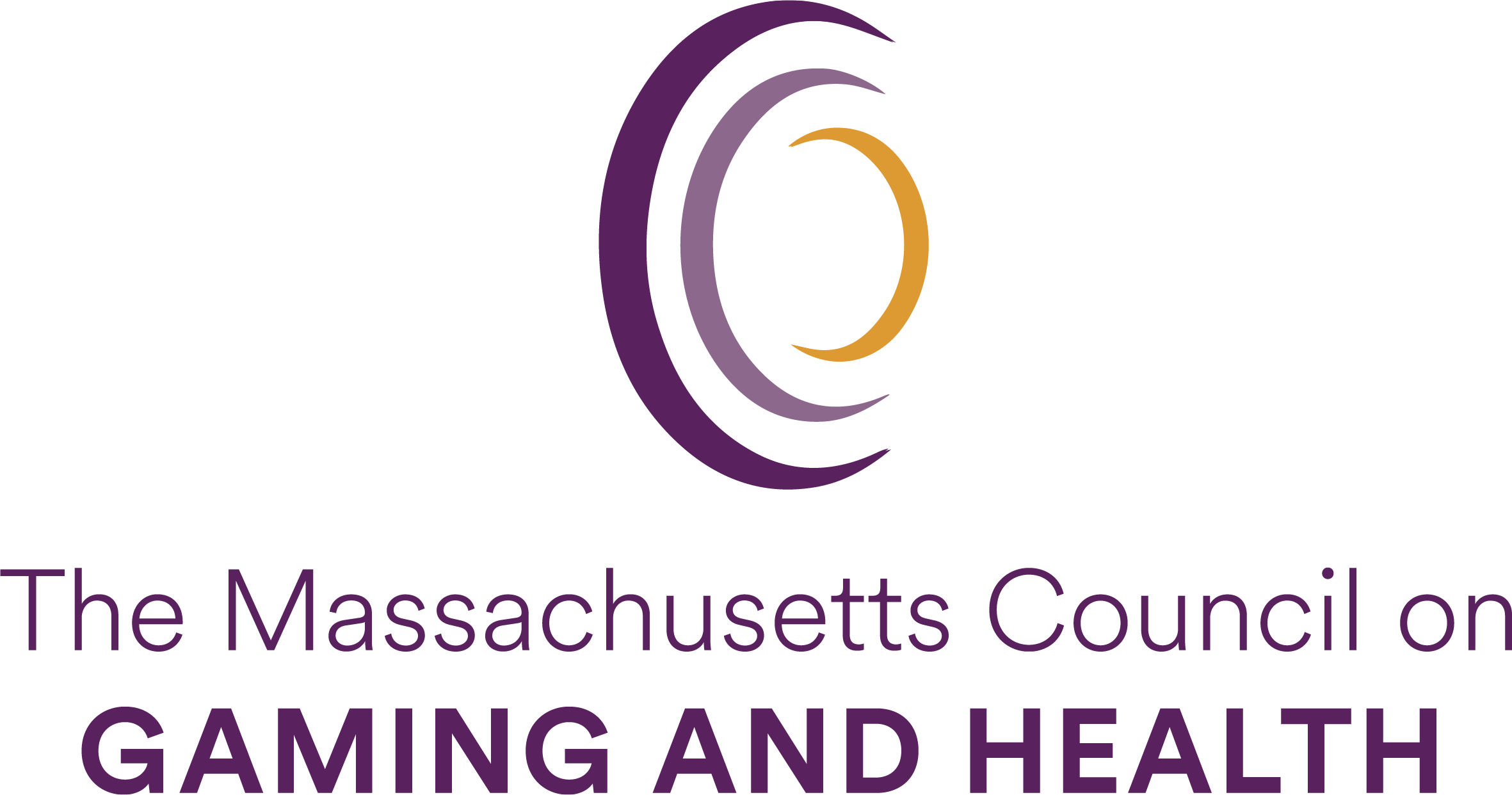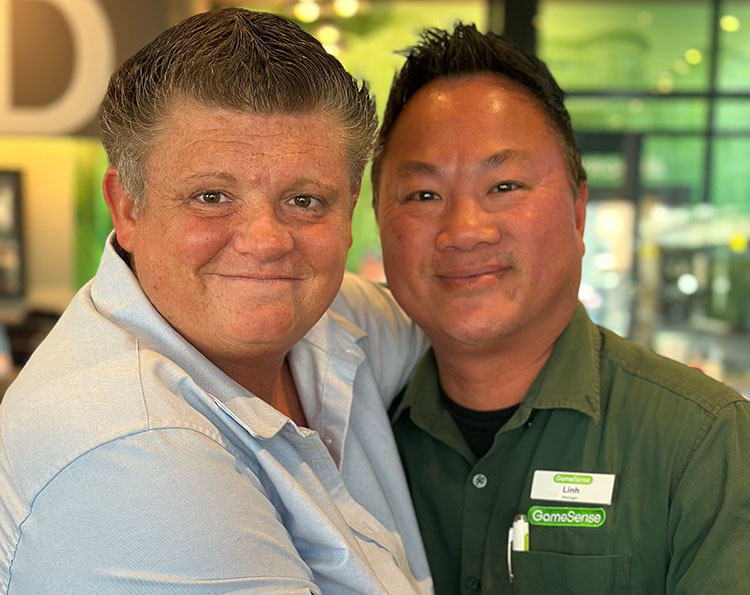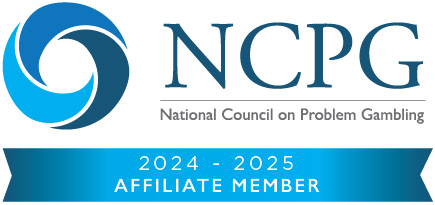[et_pb_section fb_built=”1″ _builder_version=”4.7.7″ min_height=”4171.6px” custom_margin=”0px||||false|false”][et_pb_row _builder_version=”4.7.7″ _module_preset=”default” min_height=”437.5px” custom_margin=”-55px||||false|false”][et_pb_column type=”4_4″ _builder_version=”4.7.4″ _module_preset=”default”][et_pb_divider _builder_version=”4.7.4″ _module_preset=”default”][/et_pb_divider][et_pb_text _builder_version=”4.9.7″ _module_preset=”default” custom_margin=”-20px||||false|false”]
- MACGH Executive Director Marlene D. Warner Testifies Before the Joint Committee Hearing on Sports Wagering – My name is Marlene Warner, and I am the Executive Director of the Massachusetts Council on Gaming and Health.
- A not so ordinary day in the life of a GameSense Advisor – GameSense Advisors David Tang and Josh Molyneaux were recently invited to Las Vegas to record educational Responsible Gambling training videos for RG27.
- To Looking Deeper; Transgender and Gender Diverse Youth – Traditionally research studies have looked at gambling behaviors in “boys” and “girls”, assuming that youth are cisgender, i.e. their gender identity matching their assigned sex at birth.
- Foundations in Gaming Disorder – Video game play has become one of the fast-growing forms of entertainment with over 2.5 billion players worldwide and generating an estimated $159 billion in 2020. While most people play for fun and entertainment, there is growing evidence that video game play can have serious mental health implications for a small but critical percentage.
- Upcoming Trainings– See our upcoming training opportunities HERE!
[/et_pb_text][et_pb_divider _builder_version=”4.7.4″ _module_preset=”default”][/et_pb_divider][/et_pb_column][/et_pb_row][et_pb_row _builder_version=”3.25″ background_size=”initial” background_position=”top_left” background_repeat=”repeat”][et_pb_column type=”4_4″ _builder_version=”3.25″ custom_padding=”|||” custom_padding__hover=”|||”][et_pb_text _builder_version=”4.9.7″ background_size=”initial” background_position=”top_left” background_repeat=”repeat” hover_enabled=”0″ sticky_enabled=”0″]
MACGH Executive Director Marlene D. Warner Testifies Before the Joint Committee Hearing on Sports Wagering:

We are a private nonprofit health organization that promotes public health by mitigating the negative personal and community impacts of gambling and video gaming. We are neutral on the issue of legalized gaming and gambling and are thankful for the opportunity to provide testimony before you today. We offer evidence-based programs and services from prevention through recovery to educate and build capacity of individuals and entities within Massachusetts, as well as nationally and internationally, to help people keep their gambling healthy and free from harm.
Last time we expanded gambling in the Commonwealth, the legislature put its best effort forward to make sure that people had protective factors built into the statute that legalized casinos. We have those lawmakers to thank for setting up the public health trust fund to pay for the prevention, intervention, treatment, and recovery services for those negatively impacted by gambling problems. We have a robust research agenda that has given us and continues to give data and dictates whether the social, economic, and crime data is headed in the appropriate directions and how to build appropriate and responsive programs around it. We have requirements that anonymized data be analyzed so that appropriate policies can be determined to decrease the risks associated with slots and table games. Self-exclusion is a statewide robust program and thanks to the statute we allow third parties to exclude loved ones through a supportive program at the trial court level. And maybe most importantly, we have an onsite third party run Responsible Gambling Information Center with the brand, GameSense, that the Mass. Gaming Commission contracts with our agency to operate—we have staff 16 hours a day, 7 days a week walking the casino floors at Plainridge Park Casino and MGM Springfield, and 24 hours a day at Encore Boston Harbor.
Our team promotes GameSense through three pillars: promoting positive play, supporting harm minimization, and training a Responsible Gambling-enabled workforce. What does that mean? We understand that most people are able to gamble safely, and we want to encourage that behavior, some people are at-risk for gambling problems, and we will do what we can to minimize those gambling-related harms, and we must meet all employees with education and compassion, so they show the same knowledge and respect to their customers. No one sets out to have a problem, so we meet people where they are at—whether that be a new player who needs to better understand the rules and odds of a game, or someone for whom gambling has overtaken their life and needs help to minimize the harm from gambling by accessing resources outside of the casino.
It with this incredible background that I request that we replicate and improve from the safety net put in place as you consider legalizing sports betting, whether that’d be through land-based casino sports books or online sports books or both.
Today I will outline some of the elements of that any public-health forward legislation would include to promote positive play and to minimize harm, and to enable an RG-informed workforce in three areas: Research and Data Collection, Policy Integration, and Program Development
First in Research and Data Collection, we’d like to measure:
*Awareness of games and resources among at-risk players
*Behaviors related to responsible and problem gambling and sports betting with a requirement that player data be anonymized and housed within the MODE database
*Short and long term social and economic impacts of sports betting in alignment with current casino and lottery research
*Efficacy of programs designed to address responsible and problem gambling and use of the funds set aside to prevent, intervene, and treat gambling disorder
*Risks and benefits of sports gambling on the industry’s employees. We know and understand that casino employees have upwards of 3x the amount of gambling problems from the general public, so we’d like to be proactive in protecting sports betting employees
Next in Policy and Integration, these concepts could be written into policy and regulation for any sports betting and integrated into current gambling-related policy and regs:
*Ensure transparency in all betting mechanisms. Not only should it be clear how the gambling processes work, but it should be clear how it is determined, who the key stakeholders are, and the variability of the odds in real time
*Require digital or print signage that does not “sell the dream.” All messaging should consistently tell players that gambling is not a risk-free activity and actively promote Safer Gaming resources via phone, chat, and text
*Set the minimum play age at 21 and use appropriate images and personalities that promote that. All transactions should have appropriate age verification and all advertising and marketing will actively discourage under 21 play and require a ban on whistle-to-whistle advertising and advertising on video game platforms. It is also helpful to have one consistent responsible gambling brand, such as GameSense, that licensees are able to incorporate into their annual goals.
*Commit to Employee Health and Wellness. Employees of gambling companies are at very high-risk of gambling problems. It is important to not allow employees of any sports betting operator to gamble at their own company.
*Create an environment where it is clear to the player that they are playing with real money. Require cash-based gambling and allow for finance-related exclusions, such as ATMS, credit extensions, check-cashing and moving monies over to online accounts to diminish the loophole that can allow for credit card transactions or lagged communication with bank and prohibit bonuses and rewards for excessive play. All financial transactions should be displayed in real time and real money on a consistently present data dashboard.
Marlene Warner,
Executive Director, MACGH
A not so ordinary day in the life of a GameSense Advisor:
 As someone who works in the field of Responsible Gaming (RG) and as someone whose family has been deeply affected by gambling, there was a certain tension, a mixture between nervous trepidation and hopeful expectation, in visiting the “Sin City” Las Vegas. This was my first time visiting Las Vegas. Although the city offers many entertainment options that are not gambling, there might not be any place on this earth with as much money poured into developing and marketing to a never-ending stream of gamblers. As a result, both the landscape and the history of the town are deeply steeped in gambling lore. It is almost impossible to be unaffected by this, and to be fair, that seems to be the city’s main draw.
As someone who works in the field of Responsible Gaming (RG) and as someone whose family has been deeply affected by gambling, there was a certain tension, a mixture between nervous trepidation and hopeful expectation, in visiting the “Sin City” Las Vegas. This was my first time visiting Las Vegas. Although the city offers many entertainment options that are not gambling, there might not be any place on this earth with as much money poured into developing and marketing to a never-ending stream of gamblers. As a result, both the landscape and the history of the town are deeply steeped in gambling lore. It is almost impossible to be unaffected by this, and to be fair, that seems to be the city’s main draw.
Luckily, I was not going alone, and fellow GameSense Advisor, Josh, was making the trip with me. Before our plane even departed the airport, strangers were already offering us advice on making the most of our time in Vegas. We were scheduled to shoot a series of informational RG videos for an international responsible gaming operator called RG24Seven. They had heard that the GameSense program was at the forefront of RG in the US and wanted to use our expertise and use our knowledge and get a few testimonials from us to put in their training videos.
One of the first things to strike us when we landed was that the climate was different, and I was not talking about just the weather. The social norms in the city were completely different. At least on the strip, 90% of the people walking by were tourists excited by the glitz and the glamour. Even in the face of an incredibly oppressive heatwave, people were strolling up and down the strip, determined to have a good time. A good amount of people were drinking alcohol in the streets, and you could find people from all over the country, dressed in different sorts of clothes, from all walks of life. Las Vegas felt like an amalgamation of New York on Hollywood with everything dialed to 10!
It is beyond any doubt that in our three days there, we could only experience a fraction of what Vegas had to offer. We were still there to help promote RG – albeit in a different manner. It was also extremely exciting to contribute to the growth, development, and implementation of RG in casinos. While in Vegas, our #1 priority was to do an excellent job when it came time to shoot the videos. After satisfying our responsibilities, there was certainly time to explore what Las Vegas had to offer.
 The studio for RG24Seven was located a short drive off the strip. The office building was a decent size, and behind a cluster of cubicles we found the space for the recording, a small room with two couches two lighting fixtures, a camera, and a camera operator. We spent a few minutes reviewing the scripts and making any necessary changes. We were recording a total of 7 scripts, and Josh and I were partnering up for two of them. We did our best to ensure that all of the scripts flowed smoothly and that there was a sense of cohesion between each of the paragraphs.
The studio for RG24Seven was located a short drive off the strip. The office building was a decent size, and behind a cluster of cubicles we found the space for the recording, a small room with two couches two lighting fixtures, a camera, and a camera operator. We spent a few minutes reviewing the scripts and making any necessary changes. We were recording a total of 7 scripts, and Josh and I were partnering up for two of them. We did our best to ensure that all of the scripts flowed smoothly and that there was a sense of cohesion between each of the paragraphs.
After we had finished our final edits and got acclimated, it was finally time for the moment of truth. It’s always interesting to find out how nerves will affect your performance, and while Josh and I had plenty of experience talking in front of crowds, this was completely different. Everything from the pacing to the pronunciation was deliberate and methodical. It was almost an exercise in mindfulness to speak slowly and clearly as we occasionally stumbled over words that we would normally not think twice about.
Despite it being our first time, the team at RG24Seven were quite happy with our performance and commented that we were the liveliest speakers that they had filmed to date. They loved the positive and non-judgmental RG messages, and I can say with confidence that we left a good impression before heading back home. I don’t think Josh and I will be gracing any Vegas billboards in the near future, but I’m happy to believe that somewhere out someone will be watching a RG training video with our two smiling faces in it.
David Tang, GameSense Advisor
Looking Deeper; Transgender and Gender Diverse Youth:
 Traditionally research studies have looked at gambling behaviors in “boys” and “girls”, assuming that youth are cisgender, i.e. their gender identity matching their assigned sex at birth. In 2019, a groundbreaking study took a deeper dive into problem gambling among youth and compared the gambling behaviors of transgender and gender diverse (TGD) youth with their cisgender peers.
Traditionally research studies have looked at gambling behaviors in “boys” and “girls”, assuming that youth are cisgender, i.e. their gender identity matching their assigned sex at birth. In 2019, a groundbreaking study took a deeper dive into problem gambling among youth and compared the gambling behaviors of transgender and gender diverse (TGD) youth with their cisgender peers.
The survey was completed by 80,929 Minnesota public school students in 9th and 11th grades. TGD youth reported greater involvement in most gambling behaviors and problem gambling compared to cisgender youth. The study found that there was an additional disparity by gender expression. TGD youth assigned male at birth were at even higher risk for gambling involvement and problem gambling than TGD youth assigned female at birth. The researchers concluded that “examining rates of gambling behavior as well as identifying disparities in vulnerable youth populations is crucial in order to develop culturally responsive and gender inclusive prevention, intervention, and outreach programs.”
TGD youth are a group that is often overlooked when designing these types of programs. In Massachusetts, we are fortunate to have the clinical expertise of Dr. Eunice Aviles. Dr. Avilés’ general practice focuses on the treatment of depression, anxiety, trauma, and the emotional consequences of discrimination in the transgender and gender non-binary community. She also provides treatment of gambling disorder for both cisgender and TGD youth and adults.
To find a treatment provider near you click here.
Foundations in Gaming Disorder
 Are you a counselor or prevention specialist interested in professional development and continuing education opportunities in the fields of Mental/Behavioral Health and Addictions? This opportunity is coming on behalf of two nationally respected public health non-profit organizations – the Evergreen Council on Problem Gambling and the Massachusetts Council on Gaming and Health. Are you a counselor or prevention specialist interested in professional development and continuing education opportunities in the fields of Mental/Behavioral Health and Addictions? This opportunity is coming on behalf of two nationally respected public health non-profit organizations – the Evergreen Council on Problem Gambling and the Massachusetts Council on Gaming and Health.Video gameplay has become one of the fast-growing forms of entertainment with more than 2.5 billion players worldwide and generating an estimated $159 billion in 2020 (Newzoo, May 2020). While most people play for fun and entertainment, there is growing evidence that video gameplay can have profound mental health implications for a small but critical percentage.
|
 |
|
This Foundations in Gaming Disorder virtual 15.5-hour course is designed to provide the critical knowledge needed to address at-risk gaming and gaming disorder, from prevention through treatment and recovery. Clinicians will be better equipped to screen, identify, and treat gaming disorder. Prevention specialists will be better equipped to understand risk and protective factors and implement science-based prevention strategies. All will understand the impacts on unique populations and critical connections of gaming disorder with other behavioral health and addictions issues.
THE DETAILS
Foundations in Gaming Disorder – Core training
Dates: September 21st & 22nd and October 5th & 6th 2021 (all four days)
Time: 11:45am-5:00pm ET / 8:45am-2:00pm PT / 9:45am-3:00pm MT / 10:30am-4:00pm CT
Location: Online
Presenters: Dr. Hilarie Cash, Dr. Marc Potenza, Dr. Cliff Sussman, Dr. Ed Spector and More…
Cost: $250.00
CEUs: 15.5
|
|
Foundations in Gaming Disorder training meets the educational requirements for the
|
 |
[/et_pb_text][/et_pb_column][/et_pb_row][/et_pb_section]





